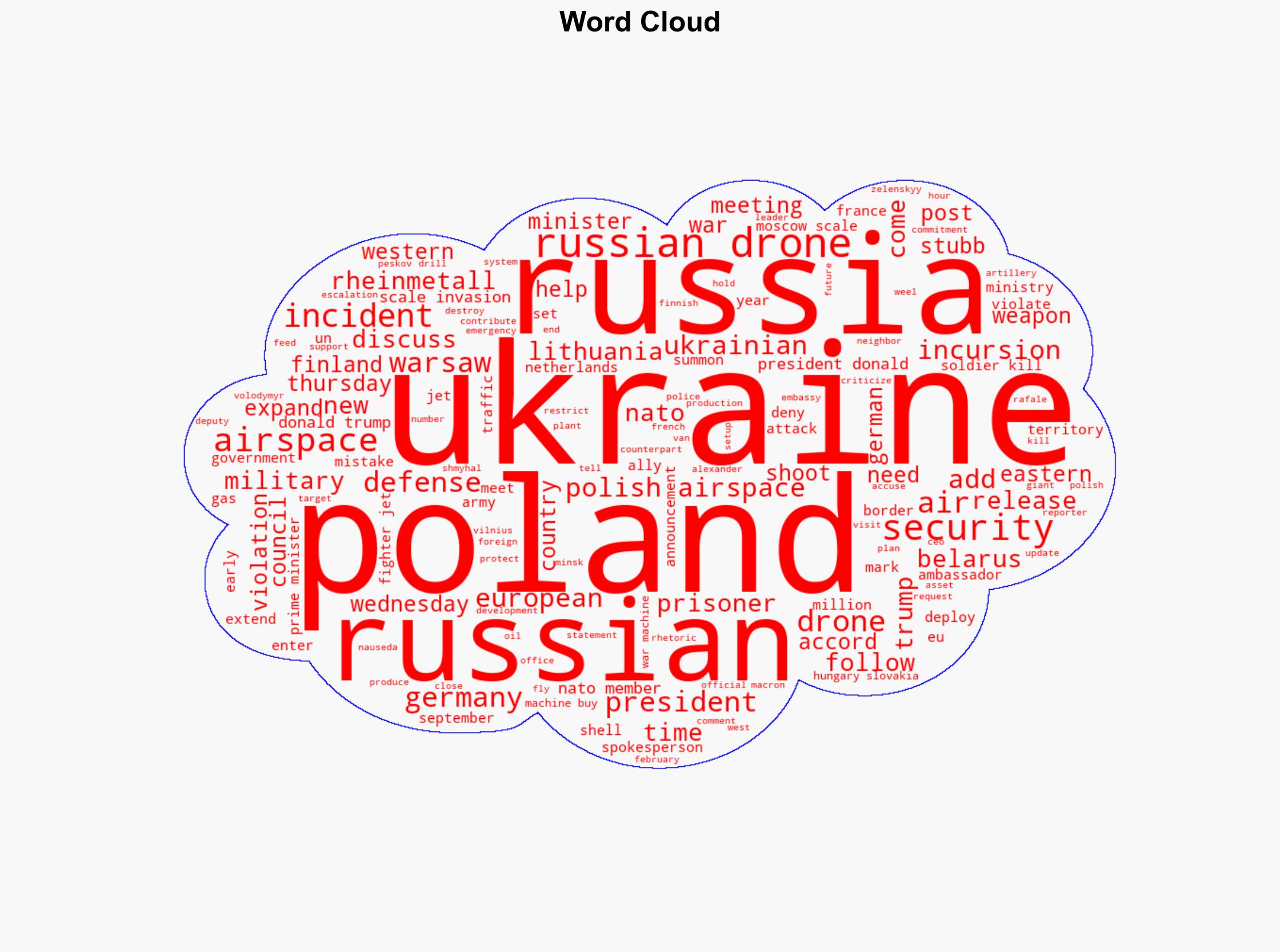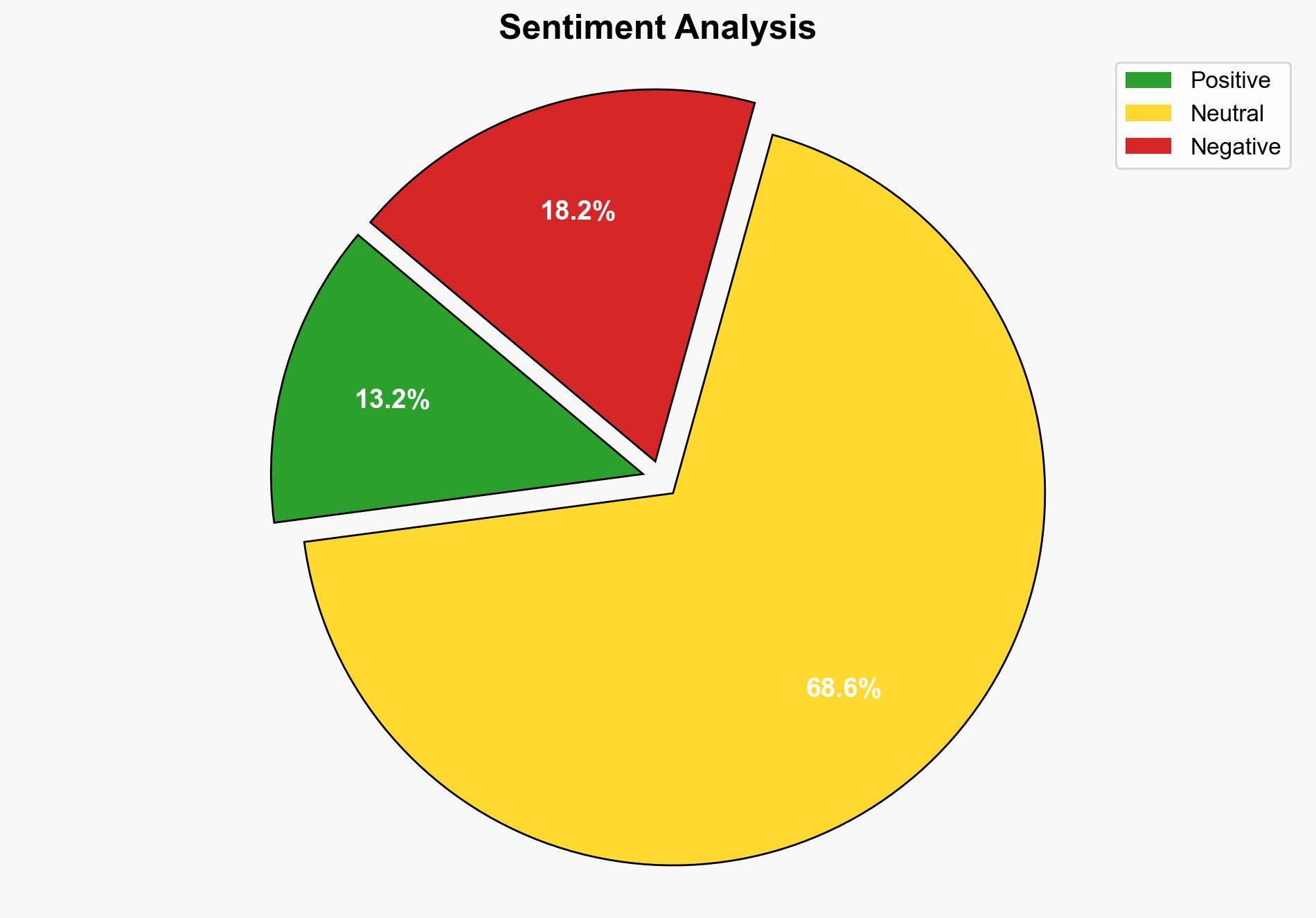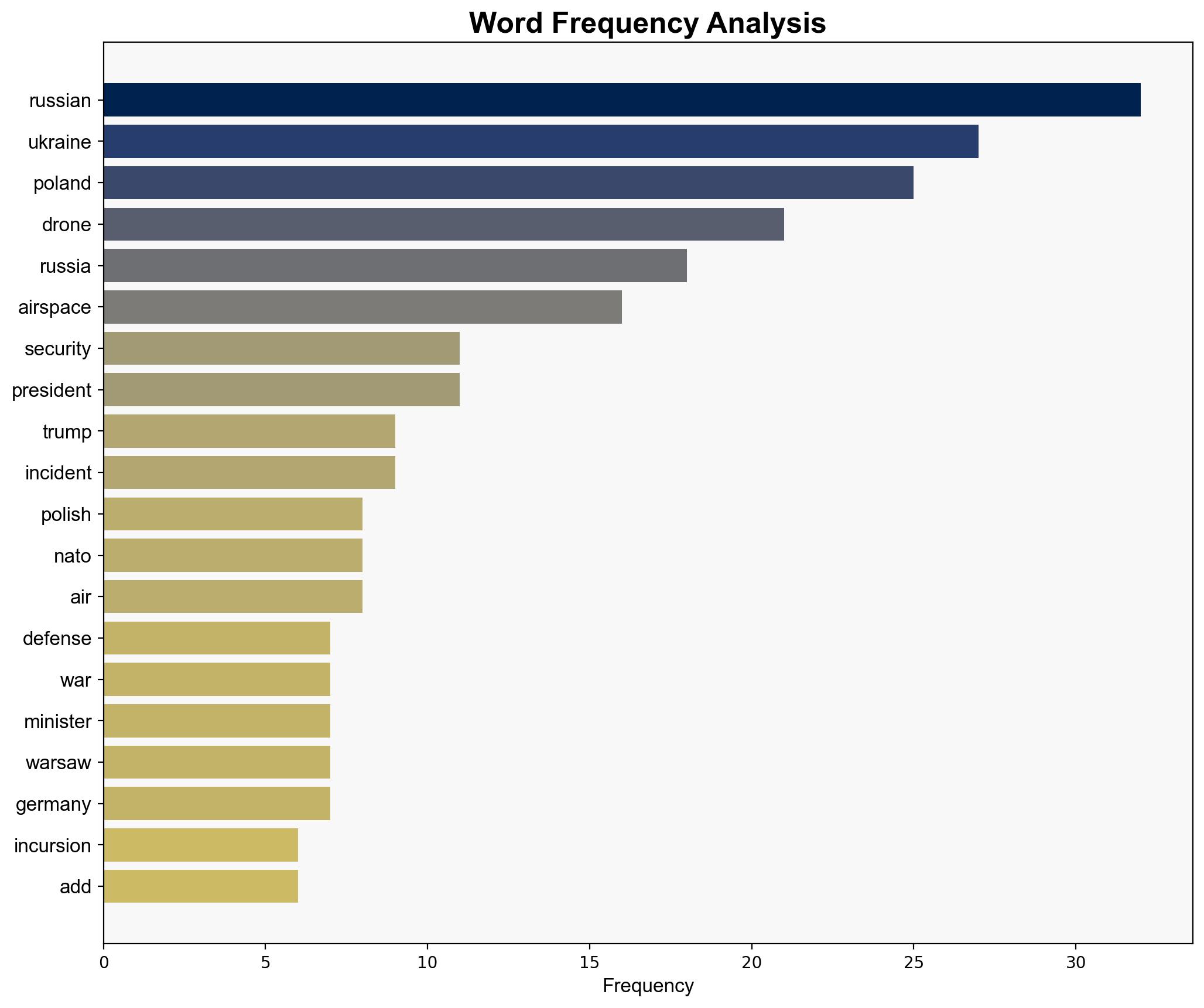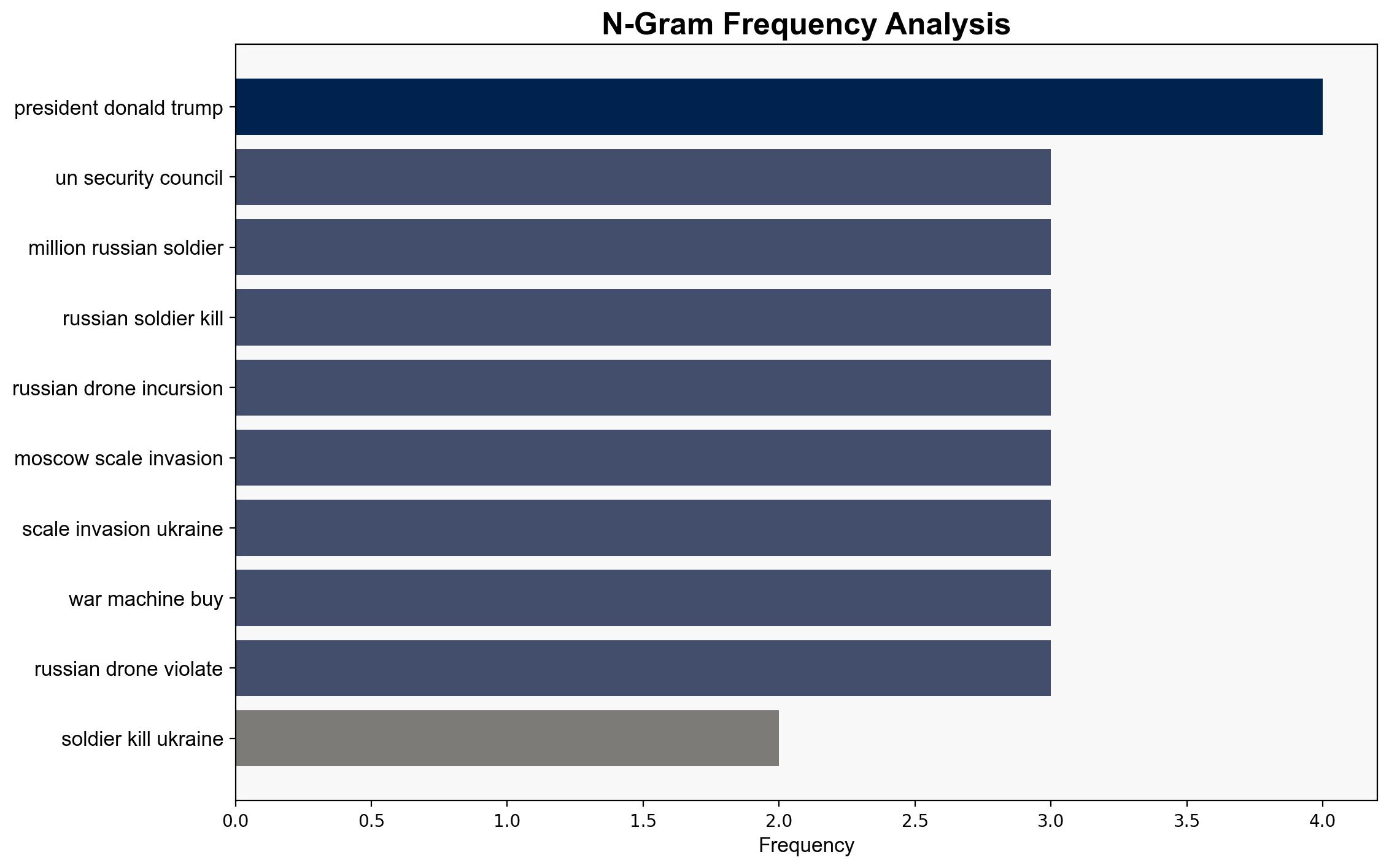Ukraine UN Security Council to meet at Poland’s request – DW (English)
Published on: 2025-09-11
Intelligence Report: Ukraine UN Security Council to meet at Poland’s request – DW (English)
1. BLUF (Bottom Line Up Front)
The most supported hypothesis is that Russia’s drone incursion into Polish airspace was a deliberate act of aggression aimed at testing NATO’s response capabilities. Confidence in this assessment is moderate due to conflicting narratives and the complexity of the geopolitical context. It is recommended that NATO enhances its air defense readiness and engages in diplomatic efforts to de-escalate tensions while preparing for potential further provocations.
2. Competing Hypotheses
1. **Deliberate Aggression Hypothesis**: Russia intentionally violated Polish airspace to test NATO’s response and sow discord among member states. This aligns with previous Russian tactics of probing NATO defenses and exploiting ambiguities in international responses.
2. **Accidental Incursion Hypothesis**: The drone incursion was an unintended mistake due to navigational errors or miscommunication within Russian military operations. This is supported by statements suggesting inadvertence and the lack of immediate aggressive follow-up actions by Russia.
3. Key Assumptions and Red Flags
– **Assumptions**: The deliberate aggression hypothesis assumes Russia has strategic intent to provoke NATO, while the accidental incursion hypothesis assumes operational errors are plausible within Russian military conduct.
– **Red Flags**: Contradictory statements from various officials, such as the rejection of the mistake narrative by Polish officials, indicate potential deception or miscommunication.
– **Blind Spots**: Lack of detailed intelligence on the drone’s mission and command structure limits a full understanding of Russian intentions.
4. Implications and Strategic Risks
– **Escalation Risks**: Continued provocations could lead to military confrontations or increased NATO military presence in Eastern Europe, heightening tensions.
– **Geopolitical Impact**: The incident may strain NATO unity if member states disagree on the response, potentially weakening collective security.
– **Economic and Cyber Threats**: Russia may leverage economic pressures or cyber operations as additional tools of intimidation.
5. Recommendations and Outlook
- Enhance NATO air defense systems and readiness along the Eastern Flank to deter further incursions.
- Engage in diplomatic channels with Russia to clarify intentions and reduce the risk of miscalculation.
- Scenario Projections:
- Best Case: Diplomatic resolution reduces tensions and establishes clearer airspace protocols.
- Worst Case: Continued provocations lead to military skirmishes or broader conflict.
- Most Likely: Ongoing low-level provocations with periodic diplomatic engagements.
6. Key Individuals and Entities
– Donald Trump: Provided commentary on the incident.
– Radoslaw Sikorski: Rejected the accidental incursion narrative.
– Emmanuel Macron: Announced deployment of French fighter jets to Poland.
– Denys Shmyhal: Discussed defense cooperation with Rheinmetall.
7. Thematic Tags
national security threats, cybersecurity, counter-terrorism, regional focus





